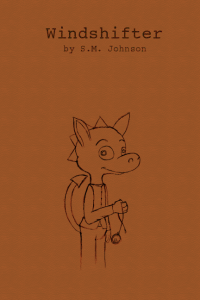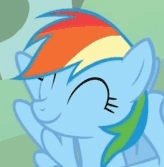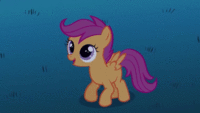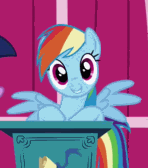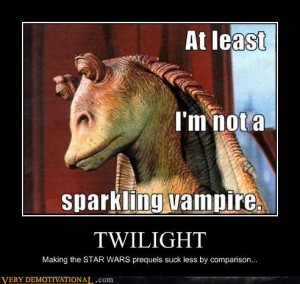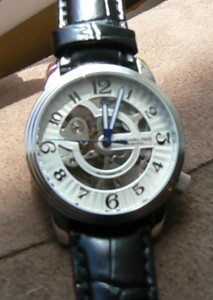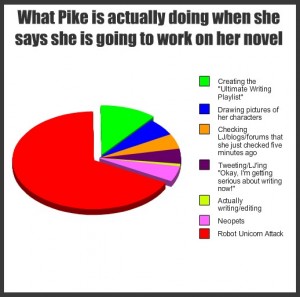PROLOGUE:
It was dark– the dead of night– and would have been darker if not for the gas lamps that brightened irregular patches of earth and grass and tall buildings. One or two men in uniform walked about, their ears pricked and their green reptilian skin dappled by the lanterns. They did not notice the figure lurking through the shadows.
Sparktender crept by, pressed up against a wall that turned into a gate. He was moving slowly and methodically, taking pains to stay out of the light and not give himself away.
His imagination was not making it easy. Fragments of memories from his past pushed themselves to the front of his mind, but he shoved them away and forced himself to focus on the task at hand, using his own movement as a mantra. Slowly… slowly…
Snap.
A twig underfoot. Sparktender froze midstep, watching helplessly as a nearby guard turned and looked straight into the shadows where he was hiding.
The fugitive didn’t move and he didn’t breathe and finally the guard dismissed the noise and moved off, leaving Sparktender frozen very still for a few moments until he felt it was safe enough to begin moving again.
He was almost to the gate now. It was open. It never closed, though. It was supposed to lull its detainees into feeling a false sense of freedom, of this Sparktender was sure. Because no one was truly free here, as was evident by the guard standing right there, ready to stop any who passed, since it was past curfew.
Sparktender paused and observed this guard. He wore a patch on his sleeve shoulder, indicating that he was a slightly higher ranked guard than most of the others that had been patrolling that night. Shrewd eyes peered out from underneath his hat and his pea-colored skin was illuminated by an eerie bluegreen glow emanating from the lantern he was holding up.
Sparktender gulped. The shadows alongside the wall of the gate were dark enough that he could possibly sneak through unnoticed– possibly. He wasn’t sure if he wanted to risk it with this guard. No, he’d have to outsmart him.
He racked his brains, constructing a few ideas in his mind and knocking them down quickly and then building them up again. He was well-acquainted with this process, though he’d never had to use it under this much stress before. But again, he forced himself to adapt– he had to.
After some thought, he decided that with his limited resources, perhaps the simplest solution would be the best one. Particularly since this guard looked restless and eager to hop onto anything… yes, he could turn this to his advantage.
Being careful with his actions, he reached into his jacket pocket. His fingers first closed around a small box– the still-raw memories began to trickle back, like water through cracks in a wall, but he willed them away– and then he found what he was looking for: a penny.
He decided on a small pile of rocks next to a tree a few paces from the guard, aimed, and then fired. The penny plinked off of the rocks, and as he’d expected, the antsy guard jumped on it. And as he stepped away, Sparktender inched up to the gate and passed through. He was leaping to make a dash for it, like a bit-chomping ceradraco at the races, and as soon as he felt that he was far enough out of the compound, he broke into a sprint.
He dashed for a small clump of bushes and trees and upon reaching it, exhaled a sigh of relief when what he was looking for was still there. Just as he’d left it.
It was an airship.
Just a small, personal craft, rickety and dilapidated and probably not far from falling apart. It was all he’d been able to afford, having pawned off his watch for it earlier that day. Even that was something he’d barely been able to pull off, only being able to do so because his watch was of his own build and as such it was of such fine make that it was worth more than most. It had been just enough to secure himself the cheapest aircraft he could find and then drag it to this location. It wasn’t much, but it would have to do.
Grim and determined, he began to climb inside.
“Sparktender?”
He jumped and whirled around, his mind racing so fast he couldn’t keep up with it. But the two people he was now facing– barely discernible in the distant lamp light, were not guards.
“…Tye Windshifter… and Rydeck Galespringer?” Sparktender’s eyes were wide in surprise.
“They’ve got you too, I see,” said Tye, and his voice was level but tinged with sadness.
Sparktender looked away. “A week or so back, yes,” he said finally.
Rydeck spoke now, shaking her head as she did. “They’ve had us almost a year,” she said bitterly. “They took us mere months after our wedding, in fact.” Then she added, “Things have certainly worsened since school, haven’t they?”
“It’s wrong,” Sparktender said, his own voice inflamed as well. “Wrong in every sense of the word. And I didn’t know you two were here also, or I’d have…” he glanced at the airship in the bushes. “…I’d have figured out a way to get you both out as well. This craft will only seat one…”
“We understand,” Tye said quickly. “It’s good that you’ll be able to get out of this place.”
“I have to,” Sparktender said. “I have… unfinished business.” His face was pained and his eyes unfocused.
“You go,” Rydeck agreed. “We’re better off staying here anyway; there’s been some talk of a rebellion. Perhaps we can help. But we do have one favor to ask of you.”
She stepped forward; she was holding something and now she held it out to Sparktender. It was a small bundle…
“A child!” Sparktender exclaimed.
“Ours,” said Rydeck. Despite the situation, she and her husband smiled a little, and Sparktender did as well.
“A boy or a girl?”
“A boy,” said Tye, a touch of pride in his voice. “A little Windshifter.”
“He was born here,” Rydeck continued. “But… we don’t want him to stay here. Not like this. Not with his creativity redirected toward who knows what atrocities. Sparktender… take him.”
“What?”
“Take him. Please.” She held the baby out to him, and he took it gently, though his face was still a picture of bewilderment.
“This too,” Tye said, pulling a gleaming watch out of his waistcoat pocket and unclipping the chain from a button.
“The watch I made you?” Sparktender’s eyebrows were furrowed.
“Keep it with him,” said Tye, handing it out to Sparktender.
Sparktender nodded, taking it gingerly and tucking it into the baby’s blanket.
Tye and Rydeck were holding each other now, bittersweet emotions welling up in their eyes.
“I– I don’t know if I’ll be able to properly raise him. I’ll be an outlaw,” Sparktender ventured.
“Do my ears detect a problem that needs to be solved?” Tye teased gently. “I once had a wise classmate who had a saying for that…”
Sparktender snorted, amused. “Suppose I can’t back down from that challenge.”
Rydeck spoke up now. “Regardless of how you go about it… we trust you’ll do what’s best for him.”
Sparktender was touched by their faith in him. He looked down through his spectacles at the child, who was calmly looking around at the goings-on with big blue eyes, taking it all in.
“We’d best get going,” said Tye. “I imagine taking off is going to cause some commotion– we’d better get back before that starts.”
“Alright,” said Sparktender.
“Take care of Lyte,” added Rydeck.
“I will. I promise.”
And then just as suddenly as they had appeared, they were gone, leaving Sparktender alone with an infant and an airship. He looked at one and the other and then with a deep breath, he climbed onto the small craft, setting the baby down gently behind him. He wasted no time in getting to work, loading up a furnace with small blue-tinted logs and then rushing over to the controls. This was an unusual ship, designed to be piloted by one person rather than the typical crew, so all of the controlling mechanisms were up front and Sparktender, who had never been inside an airship before, much less controlled one, initially felt at a loss for what to do. He cast his misgivings aside, though, with a leap of faith that had enabled him to solve problems in the past.
“Alright, let’s see here…” he mumbled to himself as he ran his eyes and fingers across the many dials and levers, trying to maintain calm and draw upon his basic understanding of machinery. As a trained mechanist, he had an advantage. But he didn’t have much time: gearwheels were spinning, propellers were whipping through the air, exhaust was billowing from the ship and it was rising now…
Startled by the noise coming from just outside the compound, several guards dashed up, and in the lead was Mistdrifter, the guard that had been fooled by Sparktender’s penny. All of them ran up to quite a spectacle: an airship, of all things, rising from the bushes.
“Halt!” Mistdrifter yelled, standing almost underneath the ship now. “You are not authorized to ride that airship. Halt!”
Sparktender ignored him, still messing with levers and with a large wheel, trying to steer the ship. “Come on, come on, come on…” he muttered through gritted teeth. He tugged on one promising-looking lever, but it snapped clean off in his hand. He looked at it incredulously. “Oh. Well.”
Mistdrifter watched as the ship continued to rise; now it was out of earshot, no doubt, so yelling warnings would be of no more use. He turned to a nearby guard. “Alert the sergeant and officers. We’ve gotta stop him before he hits three hundred meters.”
Sparktender had figured out how to control the airship– sort of– and was now gripping the wheel tightly, turning the ship so it was facing the direction of his home. He glanced at the altimeter: he had just passed one hundred meters in altitude. Then he looked down below at the Corporation grounds that he was now hovering over, and saw several guards boarding their own airships. He had a good lead on them, but they had weapons and piloting knowhow. Slowly they began to rise, and he watched as they turned themselves expertly and headed straight toward him.
Focus, focus, Sparktender told himself, willing himself to look straight ahead. Don’t think about them. He was going away, far away, and if he got some more altitude he knew they couldn’t catch him. Again he looked at his altimeter– his lifeline– he was closing in on two hundred meters.
Chok-chok-chok-chok-chok.
The sound of a great propeller coming up from behind was getting louder now, and baby Lyte let out a cry. Sparktender spun around. A guard’s ship was on his tail. The man standing at the wheel was holding something made of brass, about the size of his fist. He turned it and wound a key on its back.
“…clockwork?” Sparktender was confused, but before he could give much thought to it, the brass object was hurtled into the air– and, like an angry insect, it made a beeline towards him.
Thinking quickly, he dropped to the floor, and the object zipped over his head with a buzz. He knew it would be back, though, and this time he would be prepared: he took hold of the broken lever and, wielding it like a bat, stood back up.
Sure enough, the fist-sized clockwork instrument made a wide turn and was now heading back at him. Repressing the deep innate repulsion he felt at damaging such an intriguing device, he shut his eyes tight and swung– and hit, feeling the impact reverberating through his makeshift weapon as the smashed mechanical insect went flying.
Feeling a bit emboldened by his victory, Sparktender glanced over at the altimeter. Two hundred and seventy meters.
Another airship was closing in, now. On board a guard loaded a cannon and aimed it at Sparktender’s ship, readying it to fire. Sparktender threw himself on the floor, scooping up the baby Windshifter and holding him to his chest, bracing himself for an impact…
A guard put his hand on the shoulder of the man at the cannon. “Hold fire.”
“What?”
“He’s at three hundred meters. We can’t legally touch him. He’s gone.”
Sparktender was looking at his altimeter. Three hundred meters and rising. A slow smile crept onto his face. He looked behind him– his pursuers had stopped chasing him. He was free.
He peered over the edge of the ship, watching with wonder as the world fell away behind him and he became one with the aether. It was an amazing feeling, as though flight fulfilled some deep seated need in his soul that he didn’t even know existed.
But he felt another void still, so Sparktender clenched his teeth, took firm hold of the wheel, and flew resolutely towards his destination.
Mistdrifter was far below on the ground, watching, crestfallen, as his prey got away from him. There had been plenty of escape attempts before, and a few of those attempts had even been successful, but none had been of this sort of spectacle before. He had failed, and everyone in the compound– guards and drafted workers alike– could see it.
“Mistdrifter…” The voice was low and tinged with disappointment and Mistdrifter knew full well who it belonged to. He gulped and turned, facing a tall, shadowy man in a greatcoat, accompanied by two burly guards with blue glowing eyes. “Y– yes?”
—
“Windshifter” will be available in its entirety very soon…
